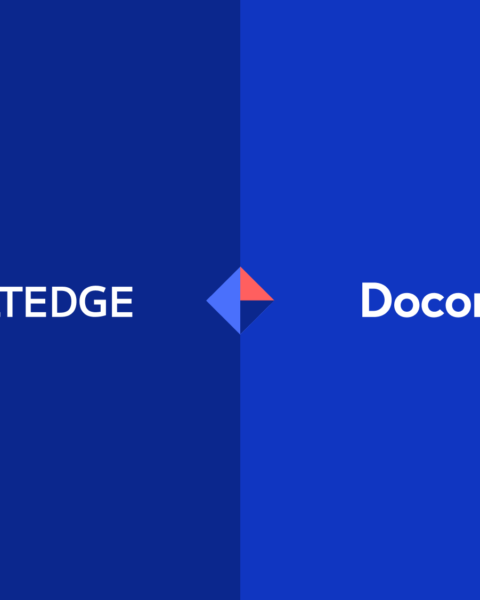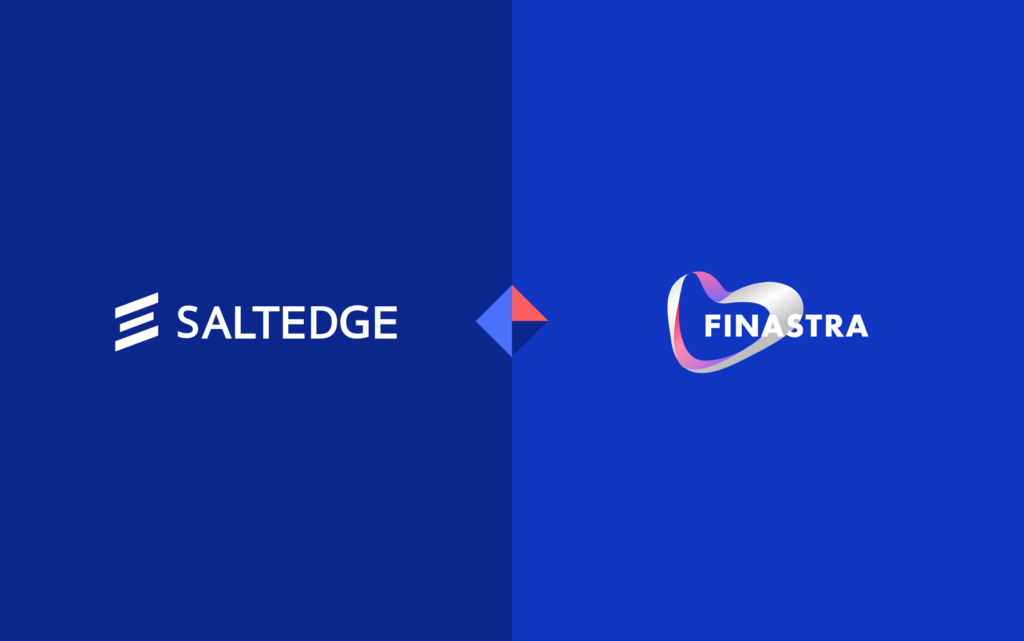Switching to the Satoshi standard and Lightning Network connectivity makes Bitcoin more tangible and easy to use. AAX has made the first move in the crypto space, already providing BTC to SAT
Finastra and Salt Edge collaborate to provide a more personalised banking experience
Finastra announced its collaboration with Salt Edge to improve the speed of compliance with PSD2 and other global open banking standards, for banks and Electronic Money Institutions (EMIs) worldwide. The integration of the Salt Edge SaaS solution, Open Banking Compliance, with Finastra’s core banking solutions, Fusion Essence and Fusion Equation, enables institutions to build the necessary architecture to support end-to-end banking requirements and compliance through one API.
In an increasingly competitive global marketplace, banks and EMIs are under pressure to optimise their core processes and profitability, reduce the time to market for new products, and continue to innovate and personalise their offering. The opening up of data has provided a good foundation for achieving this. In fact, Finastra’s State of the Nation research found that, globally, 94% of professionals at financial institutions agree that open banking is important to their organisation, with 63% reporting that it’s enabled them to improve customer experience and 59% stating that it’s helped attract new types of customers. However, complying with PSD2 and regional open banking standards can be a time-consuming, expensive and complicated task.
Salt Edge has a proven track record of success with more than 100+ API implementations for financial institutions globally. Bringing Open Banking Compliance into our suite of core banking solutions makes compliance quick and seamless for both Finastra and Salt Edge customers, while giving them the tools to create better and more personalised products and services. For the end user, the benefit is a much quicker, secure and relevant banking experience that truly accommodates their needs. We are excited to partner with Salt Edge and welcome them into our ecosystem.
Anand Subbaraman, General Manager, Banking at Finastra
Salt Edge Open Banking Compliance provides full coverage of regulated markets with cross-bank and pan-European API standards, such as Open Banking UK and The Berlin Group in the EU, as well as newly regulated markets such as Australia, Brazil and the GCC. The comprehensive set of APIs gives third-party providers (TPPs) instant and secure access to account information, payment initiation and a full-stack developer portal. Additionally, the solution provides added security, with a TPP verification system and mobile-first application to comply with strong customer authentication (SCA) and dynamic linking requirements. The integration is carried out via Finastra’s open development platform, FusionFabric.cloud.
Finastra’s commitment to unlocking the power of finance for everyone supports our goal to simplify all components of open banking and PSD2 compliance for both financial providers and end customers. The partnership extends our network coverage from our existing customers to Finastra’s wide customer base, while the pre-integration of our combined best-in-class solutions allows end-customers to benefit from more inclusive financial services thanks to open banking.
Dmitrii Barbasura, co-founder & CEO at Salt Edge
Coinbase announced launch in Japan
LiveThe largest U.S. cryptocurrency exchange has teamed up with Mitsubishi UFJ Financial Group Inc. to start a cryptocurrency exchange in Japan, allowing account holders at the nation’s biggest bank to buy and sell virtual currencies.
Coinbase Global Inc. secured regulatory approval earlier this year in Japan, where 31 companies are registered to trade the assets, and faces local competition from companies such as Coincheck Inc., owned by Monex Group Inc., and GMO Coin Inc.
“We aim to reach out to a wide range of customers by offering low-hurdle services,” Nao Kitazawa, head of Coinbase Japan, said in a briefing Thursday. The company has begun by allowing trading in five digital coins: Bitcoin, Ethereum, Litecoin, Bitcoin Cash and Stellar.
Coinbase said MUFG Bank was a payment partner in Japan and that the bank’s account holders could easily buy cryptocurrencies on the exchange. MUFG is an investor in Coinbase Global. Account holders at other banks can’t do transactions with Coinbase, Kitazawa said.
In an interview, Kitazawa, a former Morgan Stanley banker, said Coinbase Japan had staff of about 30 people currently and was looking to hire more for product development.
While Coinbase has started by targeting retail customers in Japan, Kitazawa said he is optimistic about the prospect for institutional business, given the global trend of a growing number of asset management companies, pensions and endowments allocating money to cryptocurrencies.
An increasing number of institutional investors want to talk with us, he said. “Their questions have been getting more specific recently,” adding that the company may hire staff to cater to institutional investors in Japan if it sees demand.
Japanese technology giant Glory backs shared banking hubs startup OneBanks
With banks progressively moving away from the High Street, the idea of creating shared banking hubs to maintain localised access to financial services has been gaining momentum.
The investment in OneBanks comes as UK banks extend ongoing trials of shared banking hubs in South Lanarkshire and Essex in the face of impending legislation which will give the Financial Conduct Authority the power to run the rule over future branch closures.
OneBanks is promising to provide bank-agnostic in-branch services – such as cash withdrawals, deposits, payments, and face-to-face support – for people and SMEs in communities abansoned by traditional bricks and mortar bank outlets.
The startup’s quick to assemble pop-up kiosks use Open Banking technology from a number of tech partners, including Endava, Trust Stamp, Nuapay, NCR and Accenture Business, to provide immediate access to financial accounts from multiple banks. As a shared facility, the cost is split between individual financial institutions.
OneBanks in December launched its first pilot kiosk in the town of Denny, Scotland, which has had no local bank branch for two years. The fully staffed kiosk, which has created seven new roles for local people, will be open from 7am until 10pm Monday to Friday and 9am to 6pm on weekends.
Withe investment from Glory in the bag, OneBanks intends to begin full UK nationwide roll-out, expanding to 15 locations by the end of 2022 and 150 by 2025.
OneBanks has previously secured capital from ‘angel’ backers including Rupert Pennant-Rea, former deputy governor of the Bank of England, and Baroness Bottomley, the former Conservative cabinet minister.
On completion of the transaction, Glory will become the lead external investor with a significant minority of the enlarged capital and Javed Anjum, Glory’s head of Software Strategy & Innovation will join the OneBanks Board of Directors.
Also on completion, Jonathan Hughes will assume the role of executive chairman of OneBanks. Hughes was previously ]part of the team that turned around Worldpay whilst it was under private equity ownership, led the creation of Tyl by NatWest, co-founded Pollinate International, and was a Partner at Bain & Company.
Duncan Cockburn, founder and CEO of OneBanks, says: “We see a huge opportunity for us as an independent player enabling an efficient service model which will allow banks to offer better basic banking facilities in communities where they are needed. To have a leading global provider of banking technology solutions for the financial industry buying in so enthusiastically into our vision is immensely valuable – particularly at this stage in our development.”
PNGME Raises $15M in Series A Funding to Power the Future of Financial Services in Africa
Unbundling financial data through APIs and driving data-driven insights with value-add products in Africa keeps getting more exciting as major players continue to raise more money for scale.
Less than a year after its $3 million seed round, San Francisco- and Africa-based fintech Pngme has snapped up another $15 million for its financial data infrastructure play. The company is also describing itself as a machine learning-as-a-service platform.
Octopus Ventures led the Series A round, with follow-on investment from Lateral Capital, EchoVC, Raptor Group and Two Small Fish Ventures. Other investors like Unshackled Ventures, Future Africa, Lagos-based Aruwa Capital, and The51 participated too. Pngme also received checks from angel investors; some include Hayden Simmons of RallyCap, Plaid’s Dan Kahn, Richard Talbot, ex-COO of RBC Capital Markets and Kyle Ellicott of Intersect VC.
Pngme’s platform caters to fintechs and other financial institutions across sub-Saharan Africa. When the founders, Brendan Playford and Cate Rung, last spoke with TechCrunch, Pngme was heading out of stealth mode in Nigeria, Kenya and Ghana.
Right now, Pngme has three core products for clients in these three markets. In addition to its already known API and mobile SDK, Pngme has added a customer management platform. The company says combining the three products will drive its customers’ adoption and use of personalized user experiences and financial products.
In a conversation with TechCrunch, Playford references building personalized user fintech experiences to what Alipay and WeChat have done in the past couple of years.
When users sign up, both platforms provide the right recommendations on every financial service before offering the right product when they make up their minds.
“It’s a highly data-driven user experience. And every fintech or bank wants to provide that same data-driven user experience. From instant loans or savings, or overdrafts, or whatever it might be, it’s all just like a user experience around a product,” Playford said, referring to both Chinese super-app juggernauts. “If you get to the core of all of the business problems for financial institutions, they’re looking at doing two things. One is they’re looking at lowering their customer acquisition costs. And then they’re looking at increasing the lifetime value of their customers.”
Playford says Pngme wants to mirror this playbook. But why has it become important for the company all of a sudden?
Most African financial institutions and fintechs are racing to offer fully customized user experiences and financial products tailored to their customers’ needs. To fuel these products and user experiences, data infrastructure is needed. Machine learning models are supposed to be trained to acquire, retain and maximize the lifetime value of a customer.
These processes can be expensive and time-consuming, leaving them with the difficult task of choosing between building the infrastructure or serving their customer.
Pngme allows financial institutions and fintechs to collect and aggregate financial data at scale. The company says its mobile SDK and data processing pipelines collect alternative financial data and unify it with other data sources to create a holistic picture of an individual’s financial behavior.
“The pain point we solve is the cost of building the infrastructure is very high. And the data science, the data engineering talent, just globally is really hard to find. So building a data infrastructure as a service works really well because it’s a subscription to get those services which you’d normally need a five- or six-person team to build this infrastructure.”
The close of Pngme’s Series A brings its total investment to $18.5 million, making it the most funded in this fintech category across the continent. Other prominent startups include South African-based Stitch, and Nigeria’s Okra, Mono and OnePipe.
Although each platform has morphed into providing more complex data offerings, Playford says one of the important things Pngme has considered since February is clearly distinguishing itself from these other platforms.
“What we do is that we’ve kind of really differentiated ourselves to be not just collecting the data that we can see but also, we can connect to Mono data, Okra data, and we can connect with banks’ data. We essentially merge all that data and then put machine learning models on top for the clients. That can be predictive credit models, segmentation models and really positioning ourselves as a data processing infrastructure for banks and fintechs.”
Playford’s explanation of how he thinks Pngme is different resonates with the way other founders think of their own platforms. But time will tell how long these products can keep being dissimilar.
Pngme’s proposition has found traction with some unnamed tier-one banks in Nigeria and South Africa; fintechs Kuda, Umba, Renmoney, CredPal and credit bureaus like TransUnion Africa.
Pngme will use the investment to acquire more customers, it says. One way the company plans to make this happen is by expanding its executive team. Pngme is hiring Lorraine Kageni Maina as the CSO and Nick Masson as the CTO.
Alongside key executive hires, Pngme is expanding its data science, engineering and sales teams globally. COO Rung says Pngme’s infrastructure has processed billions of data points from hundreds of financial institutions across sub-Saharan Africa. The next plan is to double down on its Insights Library product and expand its third-party data connections to other markets over the next year.
For Octopus Ventures, the lead investor in this round, Pngme shows the need for actionable data to drive the explosion of digital fintech services for Africans.
On why the VC firm invested, Tosin Agbabiaka said, “The elegance of the technology solution, combined with an exceptional team and strong market traction with large institutions underlines our belief that Pngme will power the next generation of financial services in Africa, helping to give millions of more people access to banking and lending.”
Hopper Secures $175 Million Growth Investment Led By GPI Capital
Hopper is announcing that it has completed a $175 million Series G financing led by GPI Capital with participation from Glade Brook Capital, WestCap, Goldman Sachs Growth and Accomplice as the company emerges from the pandemic stronger than ever.
As the travel industry continues to rebound, Hopper has demonstrated significant outperformance with its category-leading mobile-only marketplace, delivering value to customers and supply partners with the company’s proprietary suite of fintech offerings. Hopper has over 60 million downloads, consistently ranks as one of the most downloaded travel apps, and now has a larger air travel market share in North America than it did before the pandemic (source: MIDT) along with a growing suite of API-enabled solutions for its B2B initiative. Based on its current run rate, Hopper is pacing towards 330% revenue growth compared to last year and it has already surpassed its pre-pandemic revenue peak from Q1 2020 by over 100%. Product roll-outs have been delivered over an increasingly diversified mix of air, hotel and car rental bookings with the company’s fintech offerings now representing a majority of its revenue.
Whether it’s pricing volatility or avoiding trip disruptions, Hopper’s fintech offerings aim to address every pain point in the customer journey while driving conversion, repeat purchases, and profitability. Earlier in the year, Hopper announced that it was launching a B2B initiative called Hopper Cloud. Through this partnership program, any travel provider – airlines, online travel agencies, meta-search companies, travel agencies, etc. – can integrate and seamlessly distribute Hopper’s fintech or agency content. Additionally, Hopper Cloud offers white-label travel portals for companies that aspire to sell travel with a differentiated consumer experience and offering. By leveraging its vast data assets, Hopper takes on all financial risk as its AI is able to dynamically price each fintech offering on a real-time basis at scale.
“The success of our fintech offerings demonstrate that travelers are willing to pay for flexibility and assurance as they resume traveling again,” said Frederic Lalonde, CEO and Co-Founder of Hopper. “We feel strongly that our fintech offerings through Hopper Cloud can help supercharge the travel industry’s recovery by introducing a totally unique revenue stream for other brands. In fact, if all travel distribution channels offered our fintech, it could increase the total consumer spend for the sector by $200 billion annually. We are excited to be partnering with GPI and their distinguished track record of supporting iconic consumer internet companies. We welcome Khai to the board as we execute on a roadmap for sustained growth over the long term.”
Khai Ha, Managing Partner at GPI Capital, commented “Hopper has created a large market opportunity with unique fintech products for the travel industry that applies an entirely differentiated and attractive business model in which we are excited to work with Fred and the leadership team to accelerate the flywheel. The company emerged from a challenging period for the industry, bolstering its technology capabilities, customer service and its opportunity set with a stronger, durable foundation. We are thrilled to be a partner in this category-defining story.”
The funds will be used to accelerate the company’s growth across several fronts including customer support. Following a year of unprecedented customer support requests, Hopper has scaled its customer support team by 200% and developed several self-serve automation tools so that 60% of customer support requests are now resolved instantly. Hopper is hiring an additional 500 employees, of which 300 of them are focused on customer service. The company is actively looking to acqui-hire other teams in travel, data science, or engineering-heavy startups to introduce new product offerings and fuel international expansion. Hopper has had recent success integrating the teams of Journy and Mowgli, which will accelerate entry into new travel categories such as home rentals and regional expansion to Europe.
Kirkland & Ellis LLP and McCarthy Tétrault LLP acted as legal counsel to GPI Capital.
Sightline Payments completes $244 million round valuing the company at over $1 billion
Sightline Payments today announced the completion of a $244 million round valuing the company at over $1 billion. With this capital raise, Sightline becomes Nevada’s first fintech unicorn — one of roughly 700 startups worldwide to ever earn a $1 billion+ valuation as a private company.
In addition to Cannae Holdings, this funding round included existing investors Genting Group, Point Break Capital Management, and founding investor Walter Kortschak.
Gaming is one of America’s last cash-centric businesses, with hundreds of billions of dollars running through casinos annually. Sightline Payments was founded over a decade ago by Omer Sattar, Tom Sears, and Kirk Sanford to give consumers a way to safely and securely fund their online gaming experience, starting with New Jersey’s launch of online gaming in 2013. Sightline has helped power the exponential growth of sports betting after the Supreme Court overturned the Federal ban in 2018 and continues to lead the industry in innovation by launching cashless gaming in brick-and-mortar casinos.
“Sightline has continuously risen to meet the changing needs of the casino gaming industry. As we strive to help lead the digital transformation of the patron experience in our vertical, we are humbled to become Nevada’s first FinTech unicorn,” said Sightline Co-founder Omer Sattar. “Financial Services has historically not embraced the legal, regulated gaming industry, but thanks to the innovations Sightline has fostered in the market, gaming is clearly poised for an omni-channel cashless revolution.”
“After seeing Sightline’s groundbreaking technology firsthand at the recent launch of Resorts World Las Vegas, I am more bullish than ever about Sightline’s ability to be at the forefront of the digital transformation afoot in the North American gaming, sports, and entertainment ecosystem,” said Cannae Holdings Chairman William P. Foley II. “I look forward to helping Sightline continue their tremendous growth.”
“The Sightline team has reached new heights to provide innovative solutions to drive our industry forward,” said Sightline CEO Joe Pappano. “Our investors’ continued faith in our business will enable us to execute our vision of transforming payments in the casino gaming and hospitality industry.”
This $244 million round is Sightline’s second round in 2021. Sightline closed an earlier $100 million funding round in April, which also included an investment by Searchlight Capital Partners. Building upon Sightline’s growth in the gaming and hospitality sectors, Sightline recently acquired JOINGO, the casino gaming industry’s top mobile engagement and loyalty platform.
Latham & Watkins LLP served as legal counsel to Sightline in connection with the round, with a team led by M&A partner David Beller.
Poly Network Offers Chief Security Officer Role to “Mr. White Hat” after $600M heist
LivePoly Network has offered the hacker who exploited its protocol to steal $611 million in crypto a job as a chief security officer.
Poly Network offered the hacker (or hackers), dubbed “Mr. White Hat”, a role as the protocol’s chief security advisor on Tuesday. “Mr. White Hat” is a common reference for a hacker who receives a bounty or award for exposing a system’s security flaws.
On August 10, “Mr. White Hat” breached the security of DeFi exchanges like Polygon, Binance Smart Chain and Ethereum and stole $266 million in Ethereum, $253 million in tokens on Binance Smart Chain and $85 million in USDC on Poly Network.
In response, Poly Network urged crypto exchanges to “blacklist tokens” that were connected to the alleged hacker. Poly Network tweeted following the massive cybercrime that the company would “take legal action” and “urge[d] the hackers to return the assets.”
On August 12, Poly Network offered up $500,000 to the hacker to return all funds. The hacker declined the bounty the same day, but has since returned $400 million of the stolen assets.
Poly Network offered the hacker the chief security advisor role so that “Mr. White Hat” could continue “contributing to security advancement in the blockchain world,” according to a Medium post. Poly Network also doubled down on their offer of a $500,000 bounty if the hacker returns the remaining stolen funds.
Indonesia and Thailand Launch Instant Cross-Border QR Payment Linkage
LiveBank Indonesia (BI) and the Bank of Thailand (BOT) launched a cross-border QR payment linkage between Indonesia and Thailand today. Under this linkage, consumers and merchants in both countries will be able to make and accept instant cross-border QR payments for goods and services. This connection is the first that links the retail payment system operators in both countries. It also marks a key milestone in the ASEAN Payment Connectivity initiative, aiming to promote financial integration in the region.
This development follows similar arrangments between Singapore and Thailand, and Malaysia and Thailand which announced the enablement of instant cross-border QR payments.
The launch today is the project’s pilot phase, aiming to ensure smooth interconnection and pave the way for customers, merchants, and operators for the full commercial launch next year.
At this stage, users from Indonesia are now able to use their mobile payment applications to scan Thai QR Codes to make payments to merchants all over Thailand. Likewise, users from Thailand are now able to use their mobile payment applications to scan QRIS (Quick Response Code Indonesian Standard) to pay for goods and services at merchants in Indonesia and also use this service for their cross-border e-commerce transactions.
The full commercial phase will be launched in the first quarter of 2022. During this phase, more participating banks/non-banks are expected to join. In the future, the service will be expanded to enable users in both countries to make real-time fund transfers conveniently by referencing the recipient’s mobile phone number.
EQONEX Group announces the launch of its institutional crypto lending platform
LiveDiginex Limited (Nasdaq: EQOS), recently rebranded as EQONEX Group (“EQONEX” or the “Company”), a digital assets financial services company, today announced the launch of its institutional crypto lending platform, EQONEX Lending, and the execution of its first crypto loan to a European crypto native institution.
The launch of the platform follows a licensing agreement with Lendingblock, a lending platform for cryptocurrencies and digital assets, under which EQONEX has integrated Lendingblock’s lending exchange technology.
EQONEX Lending brings a uniquely safe and transparent offering to the market, capable of transforming the institutional crypto lending landscape. By providing a lending exchange with an open order book, its approach differs from many other crypto lending transactions which are currently undertaken on an over-the-counter (OTC) basis with little transparency over rates – a practice that stifles competition and impedes efficient markets.
The new approach enables institutional lenders and borrowers to interact directly via a lending exchange. The open order book allows exchange participants to view market rates being offered, and establishes market-competitive terms for collateralized transactions, bringing much needed rate transparency to the market. In addition to exchange-based lending, EQONEX will also offer an OTC lending service, with prevailing rates visible on the platform.
EQONEX Lending will also provide an automated workflow that manages the entire loan lifecycle, eliminating settlement risk, actively managing collateral to protect the lender from default risk and substantially reducing the operational risks normally associated with manual loan processing. The increasingly prominent risks associated with re-hypothecation are also eliminated as collateral assets are held in fully segregated storage in our FCA registered custodian.
Following a soft launch last month, EQONEX Lending has successfully originated and completed its first transaction, providing a Bitcoin (BTC) loan backed by USDC collateral. The platform has already developed a pipeline of loans to institutional counterparties, denominated principally in USDC, backed by collateral in BTC and Ethereum. The loans will service the fast-growing lending market, providing efficient financing for a wide range of institutions including funds, market makers, proprietary trading firms and crypto-specific firms such as miners.
The crypto borrowing and lending market has increased tenfold over the past 12 months. In 2020, crypto-backed loan volumes grew to well over $10 billion from just $1 billion in 2019, driven by increased investment activity from institutions. Much of this is conducted through a small number of custodial lenders. EQONEX Lending enables market participants to lend and borrow with EQONEX, but also directly with a broad range of other counterparties.
The EQONEX Lending platform seamlessly integrates with the rest of the EQONEX ecosystem including digital custodian Digivault, which provides fully segregated custody for loan collateral from the lending platform. Digivault recently received approval from the UK Financial Conduct Authority to register as a custodian wallet provider under the Money Laundering, Terrorist Financing and Transfer of Funds (Information of the Payer) Regulations. EQONEX Lending will also be integrated into the crypto exchange EQONEX to provide borrowing and lending services to both retail and institutional investors.
Richard Byworth, CEO at Diginex, said: “The crypto lending market is set to be one of the fastest-growing segments of the industry in the coming months and years, as institutions look to manage their capital efficiently. Lendingblock’s technology is proven to provide state of the art settlement, collateral management capabilities, and transparent pricing. EQONEX Lending will be the only platform that provides the ability to view the whole loan book, allowing clients to have the full flexibility to set their own financial terms.”
Head of EQONEX Lending, Charlie Beach added: “We’re very excited to have launched what we think will be a transformational product for the institutional lending market, enabling a broad range of companies to come together across a safe and transparent venue that combines proven capital markets financial concepts with blockchain technology.”
Fintech firm Chime valued at $25 bln after $750 mln funding
LiveChime Financial said on Friday it had raised $750 million in its latest funding round led by Sequoia Capital Global Equities, valuing the financial services startup at $25 billion.
Chime’s latest fundraise is likely to be a precursor to its stock market listing in the United States early next year.
The company had held preliminary talks with investment banks for a stock market floatation that could value it at more than $30 billion, Reuters reported in March, citing people familiar with the matter.
Other major investors in the Series G round include SoftBank Group Corp’s (9984.T) Vision Fund 2, General Atlantic, Tiger Global and Dragoneer Investment Group.
Launched by former Visa (V.N) executive Chris Britt and Comcast Corp (CMCSA.O) alumnus Ryan King in 2012, Chime makes money by earning a fee from payment processors such as Visa every time a customer uses a Chime debit or credit card.
It provides financial services through partnerships with brick-and-mortar banks, primarily through a Chime-branded checking account with no fees and a ‘Spot Me’ feature that allows customers to go overdrawn without penalty.
A change in consumer behavior around banking and financial services has benefited fintechs like Chime as they grow more comfortable with digital channels, a trend accelerated by the COVID-19 pandemic.
U.S. digital banks have also caught investor and public interest, highlighted by rising cases of mega funding rounds and public listings.
Chime said it would use the funds raised to scale its operations and launch new products and services.




















